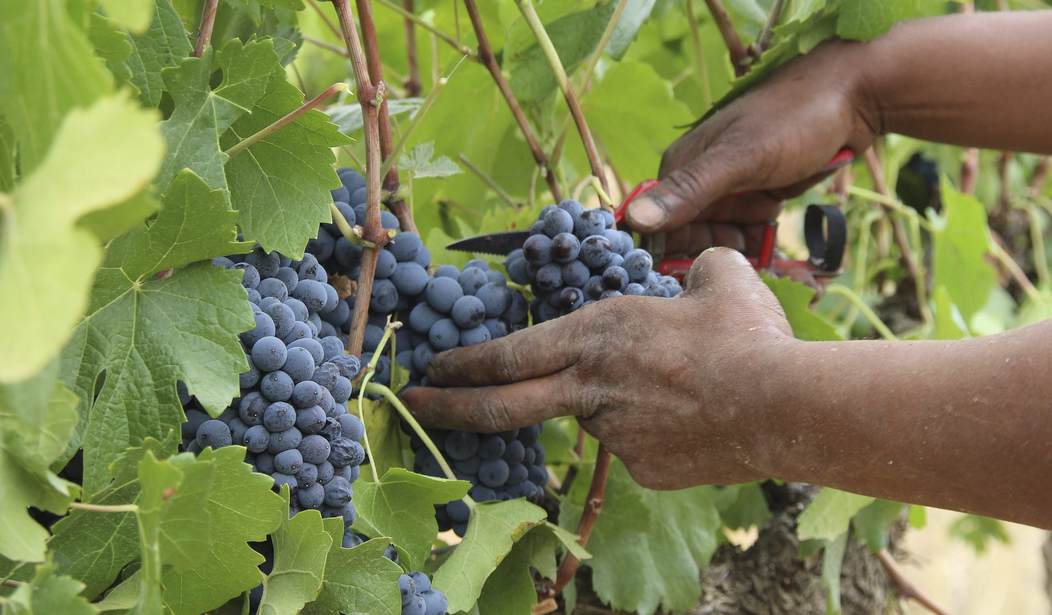WASHINGTON — The State Department said today that President Trump and Secretary of State Mike Pompeo discussed Trump’s tweet about South African land reform, and cautioned that the situation there is not comparable to Zimbabwe’s “fast-track” land grabs.
After watching a Tucker Carlson segment on Fox News on Wednesday night, Trump tweeted, “I have asked Secretary of State @SecPompeo to closely study the South Africa land and farm seizures and expropriations and the large scale killing of farmers. ‘South African Government is now seizing land from white farmers.’”
The South African government tweeted at Trump in response, “South Africa totally rejects this narrow perception which only seeks to divide our nation and reminds us of our colonial past.”
“South Africa will speed up the pace of land reform in a careful and inclusive manner that does not divide our nation,” they added.
The current land expropriation effort dates back to the Native Land Act of 1913, which limited South African land ownership by Africans to 7 percent and was eventually nudged up to 13 percent. Even in post-apartheid South Africa today, whites own 72 percent of privately held farmland. About 8 percent of South Africans are white.
South African lawmakers are currently debating expropriation of some 150 farms in the country, including whether a constitutional amendment would be needed to move forward with the plan and what compensation might look like. One opposition party has proposed taking land from white property owners who are not using the land and giving the land to black farmers, but is opposed to compensation.
President Cyril Ramaphosa wrote in the Financial Times today that “this is no land grab; nor is it an assault on the private ownership of property.”
“The proposal on expropriation without compensation is one element of a broader programme of land reform that seeks to ensure that all citizens can have their land rights recognised, whether they live in communal areas, informal settlements or on commercial farms,” Ramaphosa wrote. “It includes the release of well-located urban land for low-cost housing so that the poor can own property and live close to economic opportunities.”
Deputy President David Mabuza said at a land summit today that “as the leadership of the ANC and government, we are clear that the implementation of land reform measures must not result in social fractures and racial polarization.”
While rural crime including robbery is still a problem in South Africa, AgriSA, one of the country’s leading agricultural groups, says murders of farmers are at a 20-year low.
State Department press secretary Heather Nauert told reporters that “the president asked the secretary to look closely at the current state of action in South Africa related to land reform.”
“This is something that has been going on for many decades, the conversation and debate about land reform there. I should mention that the expropriation of land without compensation — our position is that that would risk sending South Africa down the wrong path,” she said. “We continue to encourage a peaceful and transparent public debate about what we consider to be a very important issue, and the South Africans certainly do as well.”
There has not been a U.S. ambassador in Pretoria since the last ambassador to South Africa stepped down at the end of the Obama administration.
Nauert said the U.S. is trying “to get our team on the field”; embassy staff met with the South African government today, though she did not say which side requested the meeting.
She did caution that South Africa and Zimbabwe are “different situations altogether.”
“It may be easy for some to try to draw a comparison, but there are very big differences. In Zimbabwe, we saw the government there squash civil society, shut down the media from doing their jobs and reporting, and destroyed an independent judiciary. And we have not seen that happen in South Africa,” Nauert said. “…If policies are poorly implemented, there are potentially detrimental political, socioeconomic, and other issues.”
Nauert would not say whether sanctions are being considered should South African lawmakers choose a path that doesn’t include compensation for seized land.
“I’m just saying that expropriation of land without compensation would not be a good thing,” she said. “It would send them down the wrong path.”
The Anti-Defamation League said today that it was “extremely disturbing that the president of the United States echoed a longstanding and false white supremacist claim that South Africa’s white farmers are targets of large-scale, racially-motivated killings by South Africa’s black majority.”
Since a campaign began among white supremacist groups in the United States in 2011 to allege “white genocide” in South Africa, the ADL said, “white supremacist references to ‘genocide’ in South Africa have been common.”
“Richard Spencer, for example, focused on the plight of the ‘Boers’ in South Africa in his March speech at Michigan State University, suggesting the United States might see something similar,” the group continued. “We would hope that the president would try to understand the facts and realities of the situation in South Africa, rather than repeat disturbing, racially divisive talking points used most frequently by white supremacists.”









Join the conversation as a VIP Member